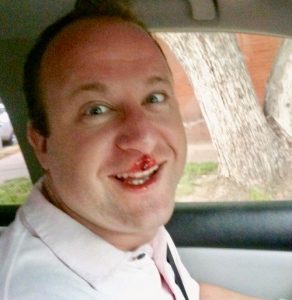To no one’s surprise, a study commissioned by Gov. Polis to find out if fracking gave him a nosebleed that one time has ciphered that drilling operations might elevate the risk of a nosebleed.
That’s mostly according to a scary headline in the Denver Post over a story written by none other than devoted fractivist Bruce Finley, who we seriously hoped thought had been scarified at the layoff alter of Alden Global Capital.
So we turned to The Colorado Sun in hopes of a more accurate reading of this study that has everyone scared, just in time for Halloween.
Nothing there about nosebleeds, but they do report the governor had an action plan already in place to address exactly whatever it was the study found, and they will immediately, if not sooner, regulate the industry to a snail’s pace of production.
Funny how that all came together so quick, no?
So here’s the breakdown.
The adverse impacts outlined in the $600,000 study, conducted by ICF, a consultant hired by the state, represent the worst-case scenario for a one-hour-long exposure to benzene. Benzene is a known human carcinogen, according to the EPA. The report did not find a significant risk for longer term health effects, and exposure to cancer-causing chemicals was within the acceptable range.
How often has this “worst-case scenario” actually occurred in Colorado or elsewhere?
Meh, health officials say they don’t actually know, but it sounds really scary, right?
But what the study says is someone might get a headache if they’re out there for an hour during the worst-case scenario within 2,000 yards of the site.
But the key here is, exactly what did they study?
Turns out it wasn’t actual, measured air quality data. Instead, their findings were based on modeled calculations.
Interestingly, when the Colorado Department of Public Health and Environment (CDPHE) reviewed more than 10,000 actual air measurements in 2017, they determined there was no need for a public health response.
By comparison, Polis’s study used outdated data from 2014 to 2016 to do their calculations.
In a statement by the Colorado Petroleum Council, Executive Director Lynn Granger noted that using modeled exposures instead of measured air quality data can introduce “uncertainties and limitations that may result in erroneous estimates of risk for a population.”
“As an industry we rely on data, facts and science and look forward to working with CDPHE and the COGCC on actual air monitoring in the future, which is what should be used when developing policy and regulations.”
If you were planning to dress as a drilling rig for Halloween, you might wanna reconsider and just stick with the grim reaper mask and Greta Thunberg t-shirt.

